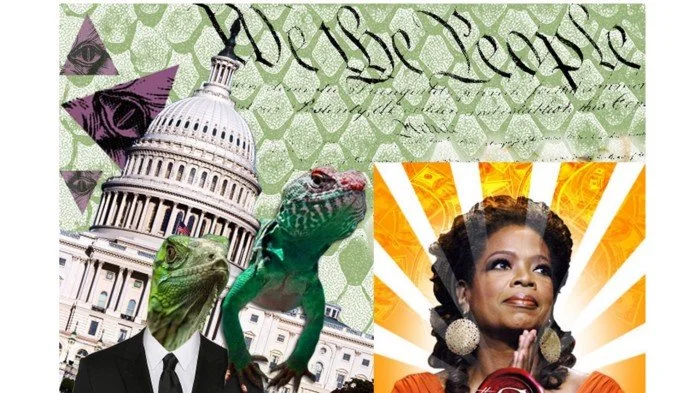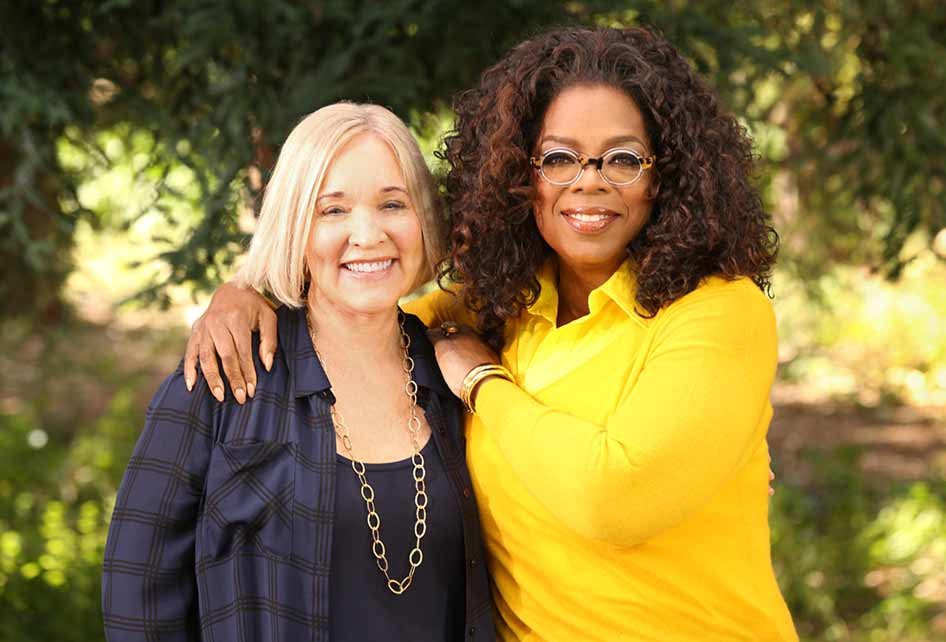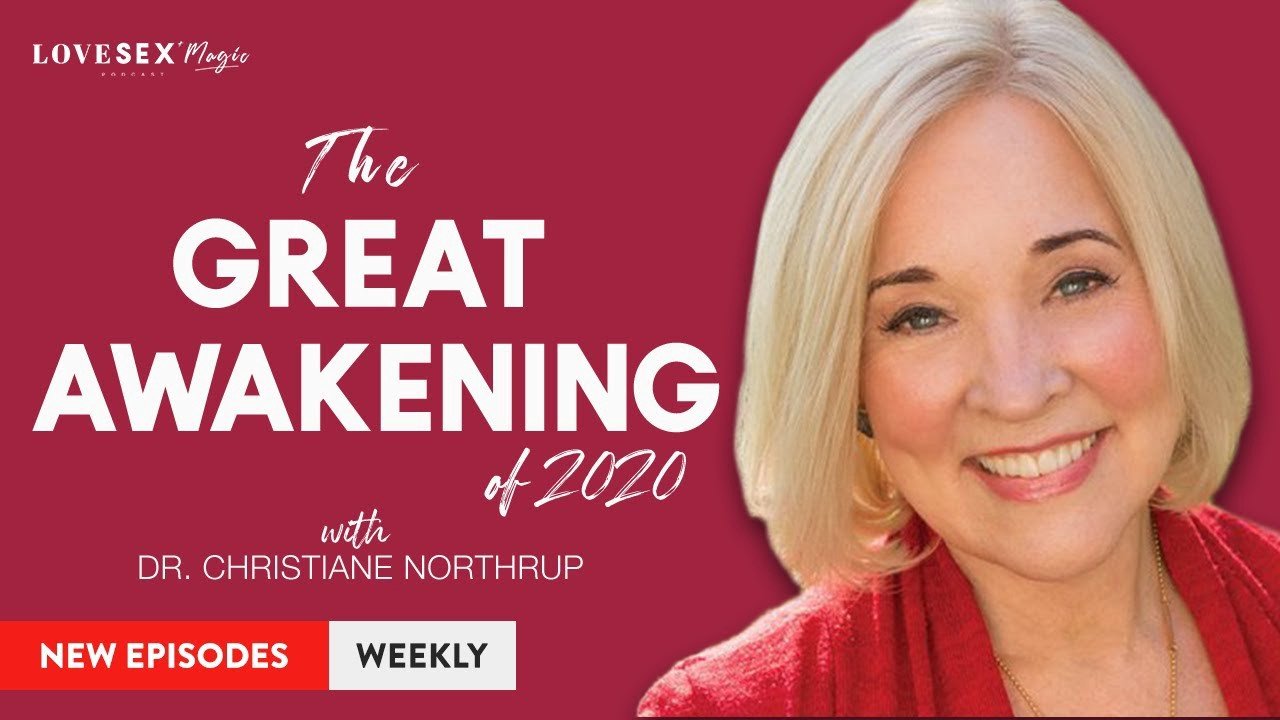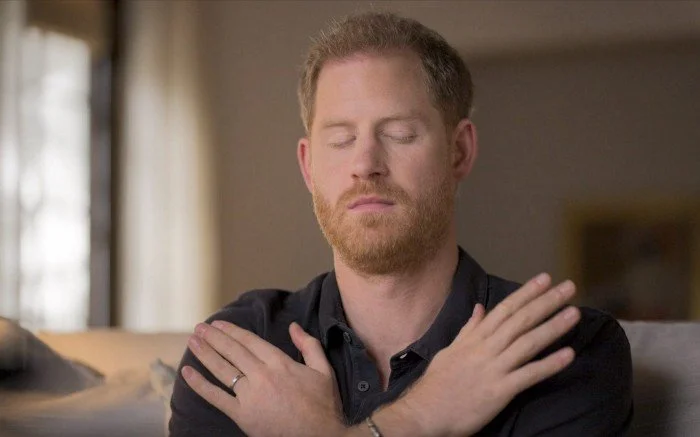On Conspirituality and Oprah
On March 17 2020, a few days after the WHO had declared COVID-19 a pandemic and states had enforced lockdowns on their citizens, Oprah Winfrey’s name trended on Twitter. Rumours suggested she had been arrested for child trafficking. Winfrey felt compelled to dispel the story:
It was the first sign that the Qanon octopus was about to emerge from the dark corners of the internet and into the mainstream, hijacking large parts of New Age and wellness culture.
Ironically, no one had done more to help that culture grow than Oprah. As Kurt Anderson, author of Fantasyland: How America Went Haywire, wrote:
Perhaps more than any other single American, she is responsible for giving national platforms and legitimacy to all sorts of magical thinking, from pseudoscientific to purely mystical, fantasies about extraterrestrials, paranormal experience, satanic cults, and more.
Now, the fantasyland she’d helped to create was turning on her. Qanon was even mainstreamed by some of the wellness gurus she’d created, like Christiane Northrup, who mutated from one of Oprah’s favourite wellness consultants into a rabid anti-vaxxer preaching the Great Awakening.
Christiane Northrup on Oprah’s Super Soul Sunday in 2015, before mutating into an anti-vax Qanon conspiritualist in 2020
To understand the rise of wellness and New Age spirituality in the last 30 years, and how it curdled into conspirituality in the last 18 months, we need to understand Oprah. She’s a titanic figure in American culture, and also one of the most significant figures in the history of American religion.
If you ask why the US has such a thriving wellness and spirituality scene, compared to the UK, there are many possible responses, such as the lack of a national health service or a national church in the US. But one reason is Oprah. She brought New Age spirituality onto primetime TV — for good and ill.
This is a tricky story for me to tell. I’m British, and didn’t grow up watching Oprah, although I realize now to what extent I am influenced by her — in my spirituality, and in the confessional-therapeutic-spiritual style of my writing. I’m also a white male, and don’t write enough about women or people of colour.
Much of my analysis will probably be wrong therefore, but hopefully some of it is right. At the start let me say how much I admire her life and work. I wish we had an Oprah in Britain. But like, everyone else, Oprah’s story is complicated, not a simple fairy tale.
It seems like a fairy tale, though. Oprah was born in rural Mississippi, she was named Orpah but everyone mispronounced it. She was descended from slaves, and raised by her grandmother, who worked as a maid for a wealthier white family. Her grandmother’s greatest hope was that Oprah would find a ‘good white family’ to work for as well. They were so poor she’d wear dresses made of potato sacks.
From the age of 9 to 14, she was sexually abused by family members. She was pregnant by 14 — the child was stillborn. Her father told her this was her second chance. She worked hard, was a precocious reader, attended the local Baptist church and got the nickname ‘the preacher’.
Her oratory won her a scholarship to Tennessee State University, but she dropped out to begin a media career, first working in local radio, then on Baltimore’s WJZ-TV, anchoring the local news. She was dropped, and moved to Chicago, where a local TV station made her co-host of their day-time chat show. Audiences liked her, and in 1986 she was given her own show, The Oprah Winfrey Show.
Then the miracle happened. Within a year, her show had become the most popular day-time talk show on American TV, overtaking the Phil Donahue Show. It was the first day-time show fronted by an African-American, and it was a massive hit. It remained the top-rated daytime talk show until its final episode in 2011, 25 years later.
Why was it such a hit? American readers will be able to say better than me. But one reason might be Oprah’s ability to connect people and generate a revival-church-like atmosphere of warmth, uplift and personal confession.
She didn’t just interview, she cried, she whooped, she shared. When a half-sister (who later died of cocaine addiction) leaked to the media that Oprah had a teenage pregnancy, it increased her relatability and her ratings. In a 1986 show on incest, she told her audience she had been abused as well. No other TV host shared like she did. She was also very open about her battles with her weight — in the most watched episode of her show, after three months of intense dieting, she pulled out a 68-pound sack of animal fat, to show how much weight she’d lost.
She was the queen of ‘parasociality’ — the audience felt they knew her and shared in her pain and her triumph. She had started at the bottom, and made it to the top. As she told the audience at one of her shows, riffing off a poem by her mentor Maya Angelou: ‘I am a phenomenal woman. I live a phenomenal life. And that’s what I want for all of you.’ She was now high status, and she made her audience feel high status too.
In the mid-1990s, daytime talk shows were becoming steadily more trashy, led by the likes of Jerry Springer and Geraldo. Oprah hosted a discussion ‘Are Talk-Shows Bad?’ She decided not to follow the ‘trash pack’, but instead to put out a more positive message. In 1996, she launched Oprah’s Book Club, selecting 77 books over the next 15 years — everything from self-help to literary classics. One marketing professor estimates the club inspired 55 million book sales.
She also started to feature more spiritual teachers as guests, starting with Gary Zukav, author of The Seat of the Soul, who Oprah invited on as a guest 37 times. She also platformed Marianne Williamson, Michael Beckwith, Deepak Chopra, Eckhart Tolle. She made these people household names, along with wellness coaches like Dr Phil, Dr Oz, Martha Beck and Iyanla Vanzant.
She started to formulate her own spirituality: you are not an accident. You are born for a reason. Everyone is. God (or ‘the Source’ or whatever you call it) has a purpose for you. The more you are true to yourself, the more you will fulfil that purpose. You don’t need to go to church. You can feel when you are aligned with your soul through your intuition. You can wake up to divine reality through ‘aha’ moments. When you are aligned with your soul, the universe conspires in your favour, and you can achieve anything. You can lead a phenomenal, phenomenal life, beyond your wildest dreams. The proof? Look at Oprah. From potato-sack dresses to a multi-billion media empire.
It was a vision of abundance, a cosmic feast to which all were invited. As she yelled ecstatically in one TV give-away: ‘You get a car! And you get a car! Everybody gets a car!’
It was the perfect prosperity gospel for the long bull market of the 1990s and Noughties. It was also in the venerable tradition of American metaphysical religion, going back to William James and New Thought — act as if the universe cares what you do, and your life will be better.
Yes, sometimes she also platformed pseudo-science, like Christiane Northrup or Jenny McCarthy, both of whom appeared on the show to question the safety of vaccines. In one show, she fed the ‘Satanic ritual abuse panic’ of the 1980s. She also devoted two shows to John of God, a Brazilian healer who turned out to be a serial rapist and gangster.
And she devoted three shows to The Secret, the 2006 law of attraction book that Oprah turned into a global bestseller. It suggests that your thoughts manifest everything that happens to you. Oprah was a billionaire because she’d thought positive thoughts. And if you were poor or sick? Think better!
One viewer contacted Oprah after the show, to say she’d been inspired to stop her chemotherapy and focus instead on thinking more positive thoughts. Oprah was so alarmed she invited the lady on the show and told her that she never wanted to suggest we should rely solely on the Law of Attraction. ‘It’s just a tool’. But the woman was not deterred, and she died.
On the other hand, countless people — millions of people — were inspired and helped by the positive gospel they heard on Oprah’s show. So what happened? How did she end up the target of the Qanon conspiracy?
First of all, the 2008 financial crisis happened. I was walking in downtown Los Angeles last week, listening to a particularly inspiring Oprah podcast about manifesting your dreams, and I felt something flying past my head. A homeless guy had thrown his shoe at me. That shoe is a metaphor for the 2008 financial crisis, and it smacked into America’s face just as it was chanting ‘Manifest abundance’.
There’s a show in 2009, where Oprah gathered a panel of spiritual experts to give advice to her audience. One of them is a lady whose business has been destroyed by the financial crisis, and she’s terrified. ‘Focus on gratitude’, she’s told. ‘The universe is preparing you for something even more incredible to happen.’ She does not look convinced. As Oprah dispenses her advice, one can’t help feeling, that’s alright for you to say, Oprah, you still have billions.
Then she came out in support of Barack Obama in the 2007 / 2008 election. Some analysts think her endorsement helped Obama win the election. Up to that point, she’d been scrupulously non-partisan. That’s when the Right started to see her as part of the liberal elite. The Religious Right already hated her for taking New Age spirituality into the mainstream.
It was at this point that conspiracy theories first started to appear about her. There had been rumours that she was a lesbian (she received hate mail after Ellen Degeneres came out as gay on her show). But now the Christian Far-Right suggested that she and Obama were members of the Illuminati or some sort of Satanic cabal (Charlotte Ward discussed these Oprah conspiracy theories in her original paper on conspirituality in 2011).
When Obama was elected, it was obvious that Winfrey had become one of the most powerful people in the country, financially, culturally, politically and spiritually. She was a member of ‘The Good Club’, an organization of the biggest American philanthropists, including Bill Gates, George Soros and David Rockefeller. She was one of the most generous philanthropists in the world. On the other hand, she was no longer ‘one of us’. She was one of Them.
In 2011, it seemed the universe was no longer conspiring in her favour. That was the year she left her incredibly successful show on ABC, and started the Oprah Winfrey Network, with around $500 million in funding from the Discovery Channel. It was going to be a cable channel dedicated to spirituality, the fulfilment of Oprah’s divine mission on Earth.
The Network bombed. It struggled to attract subscribers, and people’s appetite for 24-hour spirituality proved to be limited. Instead, Oprah’s spiritual ambitions were confined to ‘Super Soul Sunday’, in which Oprah interviewed everyone from Pema Chodron to Charles Eisenstein in the sumptuous garden of her Santa Barbara mansion. Meanwhile, the network survived by making soap operas targeted at African-Americans. Oprah sold most of her stake in the network last year, for a few million dollars.
She says the network’s struggles provoked a nervous breakdown. When life is really going your way, when everything seems to fall in place like three cherries on a cosmic fruit machine, you can start believing in a very simplistic spirituality — just make a wish and it comes true. But adversity and failure ask harder questions of us. Is there something wrong with me? Is God mysterious and unfathomable? Is the universe totally random and chaotic?
Of course, Oprah is hardly on Skid Row (where I live*). In 2018, she signed a $1 billion deal with Apple to create programmes for Apple TV, including a mental health show with none other than Prince Harry. Like me, Harry is a traumatized ginger old Etonian who has shed his stiff upper lip to embrace the cult of Oprah. Like me, he now talks about his ‘journey’, ‘doing the work’, ‘healing his trauma’. We all live in Oprah’s world now.
Oprah’s interview with Harry and Meghan was watched by millions. But, again, it’s not quite the relatable Oprah show of the 1980s. It’s Oprah talking to a duke and duchess in the garden of her mansion. The show also provoked a new wave of Qanon rumours — was she wearing a prison ankle monitor? (No, she wasn’t).
There are two moods one finds in the history of spirituality, going back to Gnosticism and running through Romanticism: euphoric and paranoid. On the one hand, there is the euphoric mood — the universe is conspiring in your favour, you can fulfil your divine potential, you can change the world simply by changing your thoughts. If enough people raise their consciousness, a new age of love will dawn on the planet. This is Oprah’s inspiring gospel.
But then the new age of love doesn’t happen, adversity strikes, the economy tanks, shit goes wrong. And the dreamers start to ask, why hasn’t the age of love dawned? What or who is blocking us? That’s when paranoid conspiracies can arise.
As Isaiah Berlin puts it in his lectures on romanticism:
There is another, more pessimistic, version [of Romanticism]…Although we individuals seek to liberate ourselves, yet the universe is not to be tamed in this easy fashion. There is something behind, something in the dark depths of the unconscious, or of history, there is something not seized by us which frustrates our dearest wishes…This paranoia [can] take the form of looking for all kinds of conspiracies in history…perhaps history is formed by forces over which we have no control. Someone is at the back of it all: perhaps the Jesuits, perhaps the Jews, perhaps the Freemasons…We the enlightened, we the virtuous, we the wise and the kind seek to do this or that, but somehow all our efforts end in nothing, and therefore there must be some fearful hostile fore lying in wait for us.
Why didn’t the age of love dawn? Because of Them. Why did my business fail? Because of Them. This is the paranoid version of the New Age dream. This is how spirituality curdles into conspirituality, and how a portion of Oprah’s congregation turned on her and decided she was one of Them.
But millions still love her, including me. Usually, when one is researching a figure in the history of conspirituality, one ends the week feeling polluted, frazzled and in need of a long shower. After a week spent listening to Oprah, I feel amazing!
I love her positive message, just as I love the pragmatic and upbeat spirituality of William James. Both had a tendency to fall for woo on occasion, but I believe the central tenet of their gospel is true: act as if the universe cares what you do, draw on the full range of your capacities, and your life will be better. Now where’s my car?
* I don’t really live on Skid Row — two blocks down! I like it.






